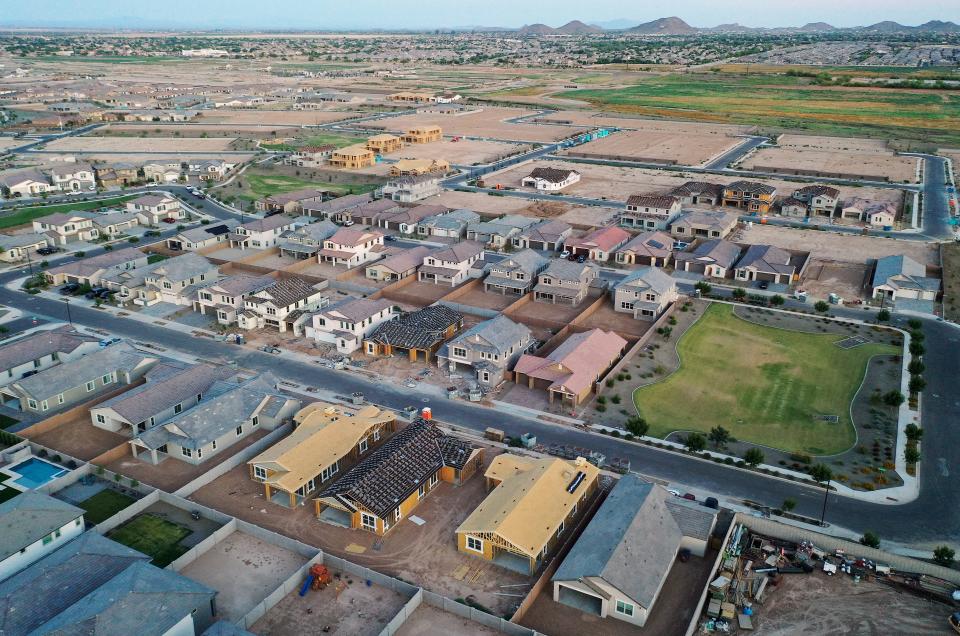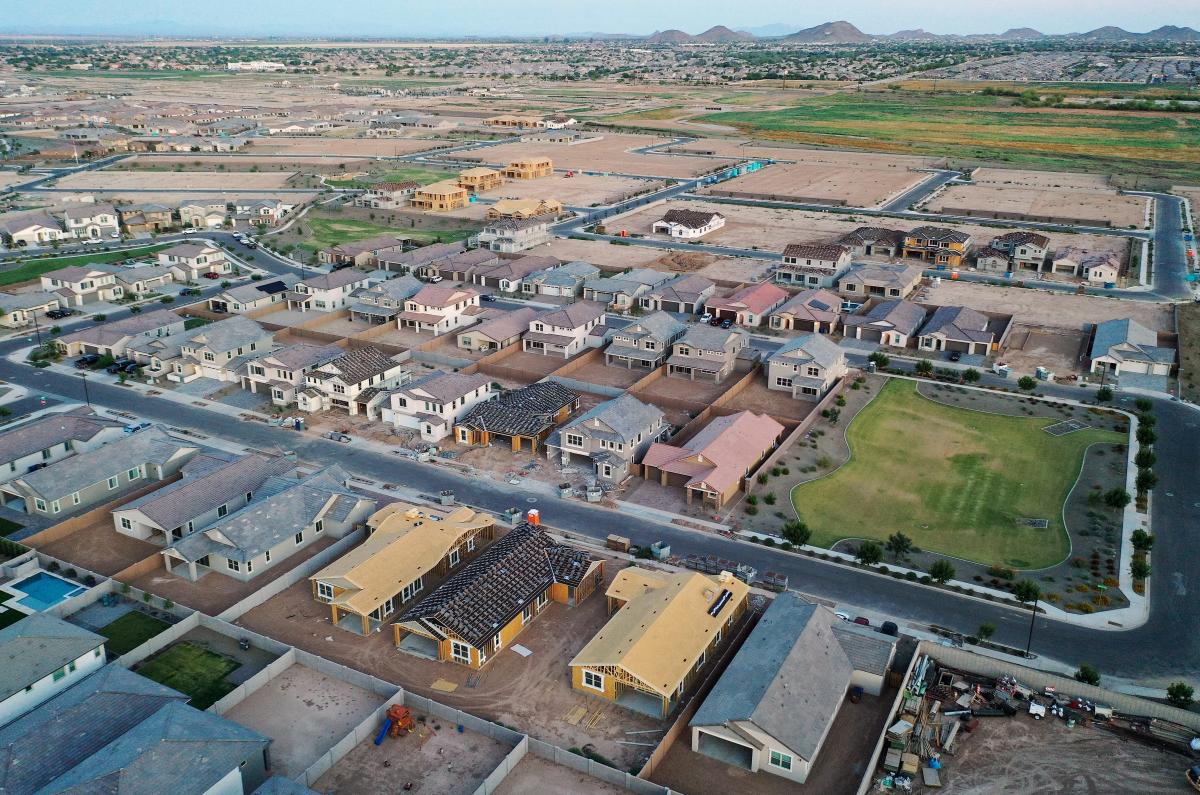But instead of fulfilling their obligation to protect this finite and diminishing water supply, Arizona’s Republican legislators have introduced dozens of bills at the statehouse aimed at enriching residential developers and corporate farmers who want to expand their groundwater use.
Many of these bills are advancing and will end up on the governor’s desk.
Lawmakers want to weaken urban water rules
One intent of these bills is to weaken the state’s assured water supply requirement for development in urban areas. This crucial consumer protection prevents the sale of subdivision lots that lack a 100-year water supply, thereby assuring our desert state’s longevity.
Outside of cities and towns, developers have been allowed for more than 30 years to rely on groundwater as an assured water supply for new subdivisions.
But last June, following the release of a new scientific model for the greater Phoenix area predicting a groundwater deficit after 100 years, Gov. Katie Hobbs rightly paused the granting of new Certificates of Assured Water Supply based on groundwater.
In a transparent attempt to give developers renewed opportunities to pump groundwater, Republican-sponsored bills would require the Arizona Department of Water Resources to alter its state-of-the-art model’s findings.
They pretend water is there when it’s not

The new bills would force the department to pretend an assured water supply is available when it’s not, while mandating the use of so-called “groundwater savings certificates” and “physical availability credits” to circumvent the truth about our dwindling groundwater supplies.
Not content just to push through their partisan legislation, House Republicans held a last-minute hearing on Tuesday to allow an “owners group” of master-planned community developers to showcase their consultant’s model that, to no one’s surprise, showed ample groundwater for the hundreds of thousands of homes in their proposed subdivisions.
Incredulously, the Department of Water Resources was not invited to participate in the hearing, while developers were given ample time to complain about their lost investments.
Meanwhile, rural Arizona has no rules
Another slew of bills targets rural Arizona.
Unlike central Arizona, which has benefited from the protections of the 1980 Groundwater Management Act, the unregulated use of groundwater has put many rural basins up for grabs.
The result over the last decade has been the proliferation of industrial-scale agriculture in places like Willcox and La Paz County.
There is no limitation on the drilling of wells in those areas, nor on how much groundwater may be used to irrigate ever-increasing swaths of alfalfa, cotton and other high-water-use crops.
Because of the massive scale of this new industrial agriculture, domestic wells are drying up and residents are worried about their homes, small farms and businesses.
Their bill to ‘fix’ it is a convoluted mess
The governor’s Water Policy Council, composed of water users from across the state, made sensible recommendations for better management of rural basins. But these recommendations did not get the time of day at the Legislature.
Instead, Republican lawmakers opted to support Senate Bill 1221 — backed by the Arizona Farm Bureau — as the solution to rural Arizona’s groundwater woes. This proposed bill would allow the creation of Basin Management Areas (BMAs for short), following a convoluted bureaucratic process.
Arizona lost the ‘little guy’: In farming long ago
Forming a BMA would require:
-
a petition signed by at least 15% of the registered voters in the basin.
-
a finding by the Arizona Department of Water Resources that there has been an “accelerated decline” in water levels in the basin over the preceding five years of 5 feet per year (along with land subsidence).
-
an unanimous vote of the county board of supervisors.
-
and a hearing before a joint legislative committee.
Now, only a governor’s veto can protect us
The emptiness of this proposal is underscored by the fact that no groundwater conservation would be required unless the basin were to become an Active Basin Management Area, following yet another unanimous vote of the county board of supervisors, plus a vote of the residents in the basin.
Ironically, or perhaps intentionally, the proposed definition of “accelerated decline” would make it impossible — even for rural basins showing the greatest groundwater level declines — to meet the threshold required to be designated as a BMA.
The Catch 22 of this cynical plan is that it would be nearly impossible to create a BMA, and it wouldn’t do any good anyway.
Forty-four years ago, Republicans and Democrats worked together to pass the 1980 Groundwater Management Act. They saw groundwater management as an issue affecting all their constituents and worked to enact a law that would advance our state’s common good.
It now appears that we have lost that shared commitment and that only the governor’s veto can protect our groundwater in these critical times.
Kathleen Ferris is a Phoenix water attorney and sits on the Governor’s Water Policy Council. She’s a former director of the Arizona Department of Water Resources. Reach her at kathleenferris22@gmail.com.
This article originally appeared on Arizona Republic: Arizona Republicans want to weaken the state’s water laws
